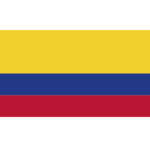

In Colombia, the protection of labor rights in Colombia is fundamental, discrimination in the workplace is a serious concern for both employers and employees. In this context, it is essential to understand the laws and regulations that govern the prevention and addressing of discrimination in the workplace.
Labor discrimination from colonial times to the present day
Labor discrimination in Colombia has been a deep-rooted reality throughout its history, from colonial times to the present day. During the colonial period, indigenous people were subjected to encomienda and forced labor, while Afro-descendants were enslaved.
In the 19th century, women were limited to the domestic sphere, and migrants faced discrimination based on their national origin. Although significant legal progress has been made, such as the 1991 Constitution and Law 1482 of 2011, which prohibit and penalize labor discrimination, significant challenges persist in the 21st century. Women, Afro-descendants, indigenous people, LGBT+ people, and older adults continue to face barriers in accessing formal employment and better working conditions.
This shows that despite government and civil society efforts to combat discrimination, there is still a need to strengthen the application of labor law in Colombia, combat stereotypes and social prejudices, and guarantee equal opportunities for all population groups.
Legal regulations in Colombia
The Colombian Ministry of Labor has reinforced its commitment to equality and the protection of the right to work through the issuance of Circular 0062 of October 7, 2021. This circular reiterates the prohibition of any act of exclusion in the selection processes to perform a job in the private sector.
Likewise, the Colombian Political Constitution, in its article 13, establishes special protection for those people who find themselves in circumstances of manifest weakness, whether due to their economic, physical or mental condition.
On the other hand, Article 53 of the Constitution guarantees principles such as equal opportunities and the non-waivability of minimum benefits established in labour regulations. These principles are essential to ensure fair and equitable treatment in the workplace.
The position of the Ministry of Labour
The Minister of Labour, through his representatives, has strongly expressed his rejection of any type of discrimination against workers and job applicants. He emphasizes that displays of exclusion or work obstacles will not be tolerated, especially towards people with disabilities.
Furthermore, the Ministry urges employers to comply with legal and jurisprudential guidelines that regulate the selection of personnel. This includes applying the principles of good faith, reasonableness and proportionality in decisions related to the selection or exclusion of a person for a specific position.
Protection of workers’ rights
It is the employer’s responsibility to ensure that the right to privacy and health of its employees or job applicants is protected. It is also crucial that the criteria for selecting employees is based on the skills and aptitudes required for the specific job, avoiding any type of discriminatory practice that affects the rights of job applicants.
Consequences of labor discrimination
The Ministry of Labor warns that employers who carry out discriminatory practices in the selection, admission and permanence processes of workers will be subject to investigations and sanctions for violation of labor rights.
It is important to understand that workplace discrimination not only affects the individuals directly involved, but can also have a negative impact on productivity and the overall work environment.
Tips for employers and employees
To prevent and address workplace discrimination in Colombia, both employers and employees can take the following steps:
- Know the law: It is essential to be informed about the laws and regulations that protect against discrimination at work.
- Promote equality: Employers should create clear policies and procedures that promote equal opportunity and fair treatment in the workplace.
- Training: Provide regular training to employees and managers on the importance of diversity, inclusion and discrimination prevention.
- Reporting Channel: Establish a confidential reporting system so that employees can safely report any incidents of discrimination.
- Impartial Investigation: Take all complaints of discrimination seriously and conduct impartial and thorough investigations.
- Raise awareness: Organize activities and events that promote awareness of diversity and inclusion in the workplace.
- Victim Support: Provide support and resources to employees who have been victims of discrimination, including access to legal counsel if necessary.
For employees, it is important to know their rights and not be afraid to speak up about any form of discrimination they experience in the workplace. Working together, employers and employees, is essential to creating a safe, inclusive and respectful work environment for all.
In conclusion, preventing and addressing discrimination as part of labor law in Colombia is the responsibility of all actors in the labor market. By complying with the laws and promoting equal opportunities, we can create a more fair and equitable work environment for all Colombians.




